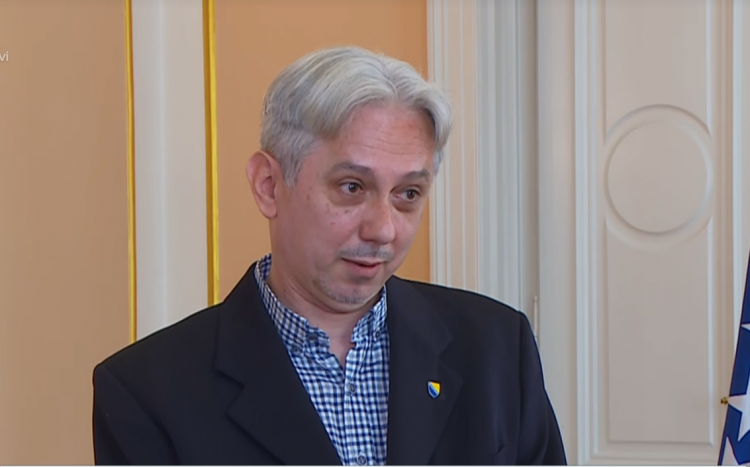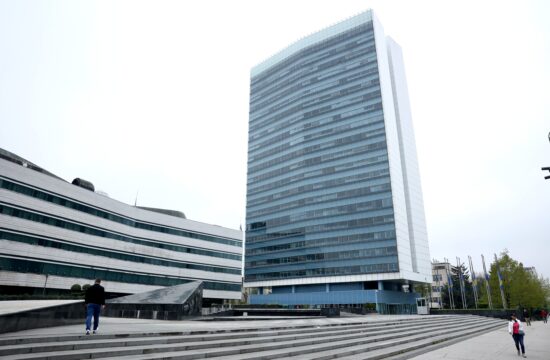
The European Court of Human Rights in Strasbourg published a summary of the verdict on the appeal of Slaven Kovacevic against Bosnia and Herzegovina on its website, in which it was determined that his right to vote was violated. Pročitaj više
The Court found that the combination of territorial and ethnic requirements amounted to discriminatory treatment in breach of Article1 of Protocol No.12 (General prohibition of discrimination) in the context of the right to participate in elections to the House of Peoples, also held true in respect of the right to vote in elections to the Presidency of Bosnia and Herzegovina.
The Court also found that Bosnia’s current political system gives priority to ethnic representation in relation to political, economic, social, philosophical and other factors, which reinforces ethnic divisions in the country and undermines the democratic character of elections. It is added that the “constituent peoples” obviously enjoy a privileged position in the current system.
The judges who passed the verdict included: Gabriele Kucsko-Stadlmayer (Austria), President of the Council, Tim Eicke (Great Britain), Faris Vehabovic (Bosnia and Herzegovina), Lulia Antoanella Motoc (Romania), Armen Harutyunyan (Armenia), Ana Maria Guerra Martins (Portugal) and Anne Louise Bormann (Denmark).
The Court stated that the applicant is a citizen of Bosnia and Herzegovina and lives in Sarajevo, situated in the Federation who does not declare affiliation with any of the country’s “constituent people” (Bosniacs, Croats and Serbs) or with any other ethnic group. Due to a combination of territorial and ethnic requirements, he was unable to vote for the candidates of his choice in the latest legislative and presidential elections at the State level which took place in Bosnia and Herzegovina in 2022.
Under domestic law, the Court recalled, the applicant had been clearly entitled to vote in the latest elections to the Assembly of the Sarajevo Canton and, indirectly, in elections to the second chamber of the State Parliament – the House of Peoples of the Parliamentary Assembly of Bosnia and Herzegovina.
Thus, Kovacevic’s complaint that he had been discriminated against in the enjoyment of that right concerned a “right set forth by law”, they added.
Moreover, in view of the powers of the House of Peoples, the functions it fulfilled on behalf of the citizens involved both legal obligations and discretionary powers.
“The applicant’s ability to influence decisions made in respect of himself and those like him had been reduced by the fact that he had been and still was unable to participate in the exercise of any of those powers. Therefore, Article 1 of Protocol No.12 was applicable. Accordingly, the applicant was treated differently than persons from the Federation [FBiH entity] who declared affiliation with Bosniacs and Croats and persons from the Republika Srpska who declared affiliation with Serbs,” the Court said in their summary.
“The Government’s argument that the applicant could have changed his permanent residence was not convincing because a false declaration of permanent residence was an offence and social benefits were strictly linked to place of residence and not the same in different parts of the country. The Court considered the historical context, notably that the above-mentioned arrangements had been designed to end a brutal conflict marked by genocide and ‘ethnic cleansing’ and the nature of the conflict had been such that the approval of the “constituent peoples” had been necessary to ensure peace. Therefore, it was conceivable that the existence of a second chamber, composed of representatives of the ‘constituent peoples’ only, would have been acceptable in the special case of Bosnia and Herzegovina, had the powers of the House of Peoples been limited to the precisely, narrowly and strictly defined vital national interests veto of the “constituent peoples”. However, the House of Peoples was currently a chamber with full legislative powers and the Constitution provided that all legislation required the approval of both chambers. That being the case, it was of the utmost importance that all segments of society should be represented in the House of Peoples.”
When it comes to the complaint regarding restrictions on the right to vote for the Presidency of Bosnia and Herzegovina the Court found that the combination of territorial and ethnic requirements amounted to discriminatory treatment in breach of Article 1 of Protocol No. 12 in the context of right to participate in elections to the House of Peoples, also held true in respect of the right to vote in elections to the BiH Presidency.
“The applicant did not have the option of voting for candidates who did not declare affiliation with any of the ‘constituent peoples’ (since such candidates were not even entitled to stand for election). Furthermore, being a resident of the Federation, the applicant was not entitled to vote for the candidates who had declared affiliation with Serbs. Therefore, unlike persons from the Federation who had declared affiliation with Bosniacs and Croats and persons from the Republika Srpska who had declared affiliation with Serbs, the applicant was not genuinely represented in the collective Presidency. He was thus treated differently on the grounds of his place of residence and ethnicity,” the Court concluded.
The Court further confirmed that the Presidency was a political body of the State and its policy and decisions affected all citizens of BiH, whether they lived in the FBiH, the RS or the Brcko District.
“Therefore, the political activity of the collective Head of State was a matter that clearly had concerned the applicant. Peace and dialogue were best maintained by an effective political democracy of which the ability to freely exercise one’s right to vote was a pillar. Therefore, no one should be forced to vote only according to prescribed ethnic lines, irrespective of their political viewpoint. Even if a system of ethnic representation was maintained in some form, it should be secondary to political representation, should not discriminate against ‘Others and citizens of Bosnia and Herzegovina’ and should include ethnic representation from the entire territory of the State”, the Court concluded in their verdict.
You can read the full verdict on this link.






Kakvo je tvoje mišljenje o ovome?
Budi prvi koji će ostaviti komentar!